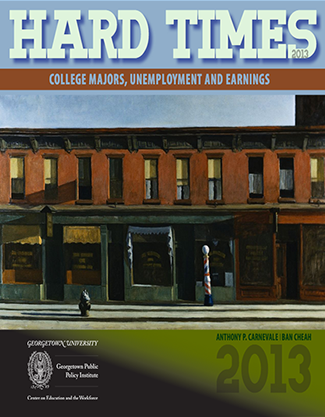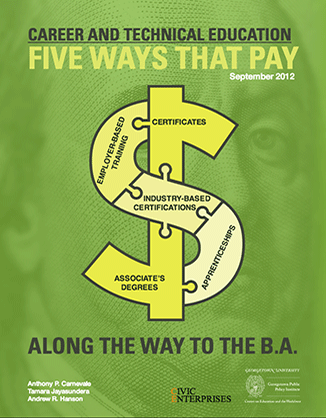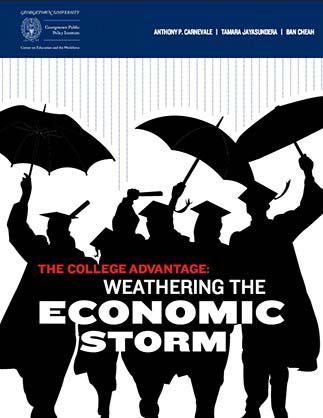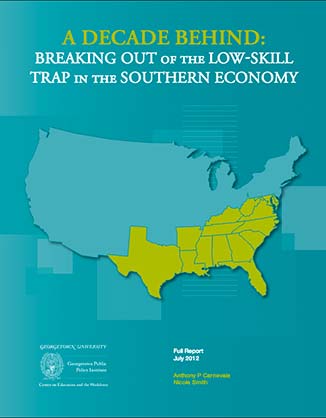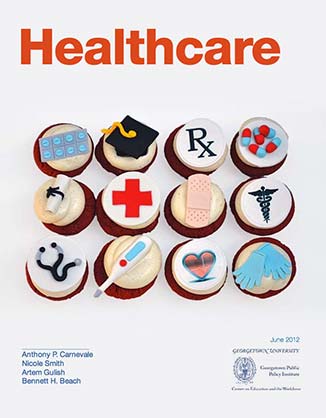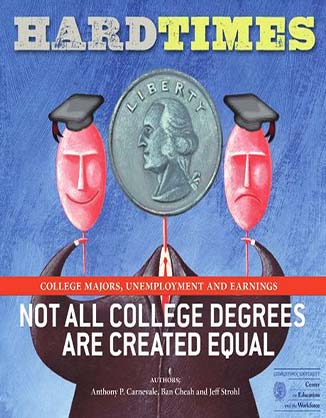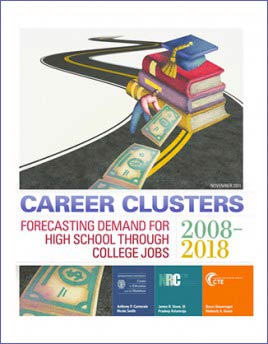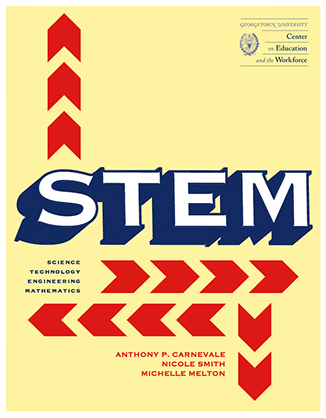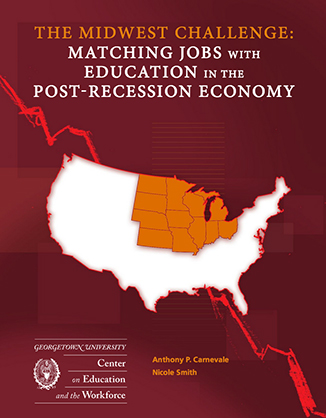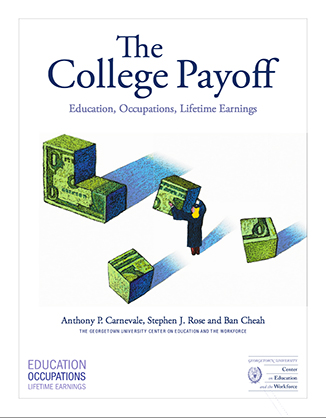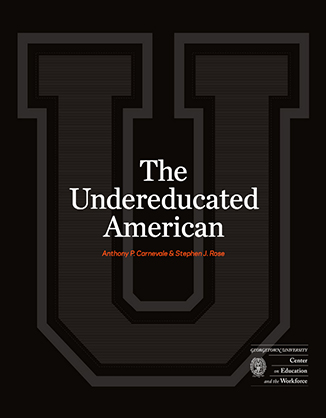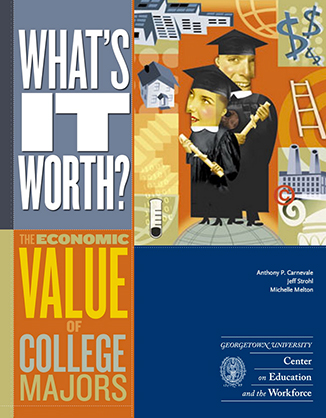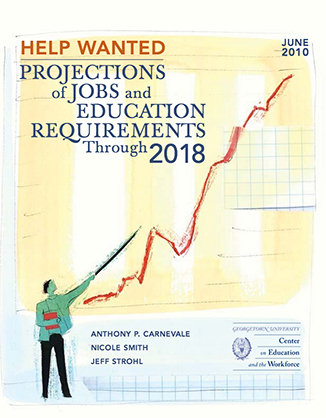CEW explores the links between education, career preparation, and workplace demands. Our research focuses on jobs, skills, and equity with the goal of better aligning education and training with workforce and labor market demand.
Reports
Hard Times 2013
MAY 29, 2013
The first edition of Hard Times shows that despite the sluggish recovery, the overall unemployment rates for recent college graduates have dropped 7.9 percent (2010), compared to the 8.9 percent (2009) unemployment rate.
Career and Technical Education
SEPTEMBER 18, 2012
Getting a Bachelor’s degree is the best way for most workers to make middle-class wages. In this report, however, we show there are 29 million jobs (21% of all jobs) for workers without Bachelor’s degrees. The report also details five major sub-baccalaureate, career and technical education (CTE) pathways: employer-based training, industry-based certifications, apprenticeships, postsecondary certificates, and associate’s degrees.
The College Advantage
SEPTEMBER 15, 2012
Many of the stories you’ve heard about the Great Recession often involve the plight of college graduates, or stories about how men and women have fared differently in the recession and recovery. In The College Advantage, we argue that college degrees have served as protection for Americans seeking shelter during a tough economic storm.
A Decade Behind
JULY 31, 2012
In order for the South to get out of the low-skill low-wage trap, it will need to invest in education and postsecondary training to break the cycle. We provide projections of education and employment containing a state-by-state analysis of 17 southern states through 2020.
Healthcare
JUNE 21, 2012
In Healthcare, we provide detailed analysis and projections of healthcare fields, occupations, and their wages. In addition, we discuss the important skills and work values associated with healthcare fields and occupations. Finally, We analyze the implications of our findings for the racial, ethnic, and class diversity of the healthcare workforce in the coming decade.
Certificates
JUNE 6, 2012
Certificates are the fastest growing postsecondary credential, and second only to Bachelor’s degrees in the number earned each year. In this report, we provide a comprehensive analysis of the returns to certificates and who earns them.
Hard Times 2012
JANUARY 4, 2012
In Hard Times, we argue that college remains the best alternative for young workers with one caveat: Not all majors are created equal. Some majors offer substantially better employment prospects than others.
Career Clusters
NOVEMBER 14, 2011
In Career Clusters, we examine which sectors of the labor market afford individuals the best route to a middle class income. Using forecasts, we identify the most promising clusters for job seekers with a high school diploma or less, middle skills such as a certificate or Associate’s degree, and those with Bachelor’s degrees or better.
The Midwest Challenge
SEPTEMBER 13, 2011
This report finds that the twelve Midwestern states are no longer dependent on manufacturing. New jobs in the region will be in high-skill service industries such as education and healthcare.
The College Payoff
SEPTEMBER 5, 2011
College pays off over a lifetime, but occupation, gender, race and ethnicity matter too. The College Payoff also details how some workers can make more than their better-educated counterparts.
The Undereducated American
JUNE 26, 2011
The United States has been under producing college-educated workers for 30 years, and is paying for it with increased income inequality.
What’s It Worth?: The Economic Value of College Majors
MAY 24, 2011
This report details the relationships between major, gender, race/ethnicity, attending graduate school, and earnings.
Help Wanted
JUNE 15, 2010
Landmark report shows where the jobs will be, by education level, occupation and industry through 2018, and how postsecondary education is increasingly essential to middle class earnings.

